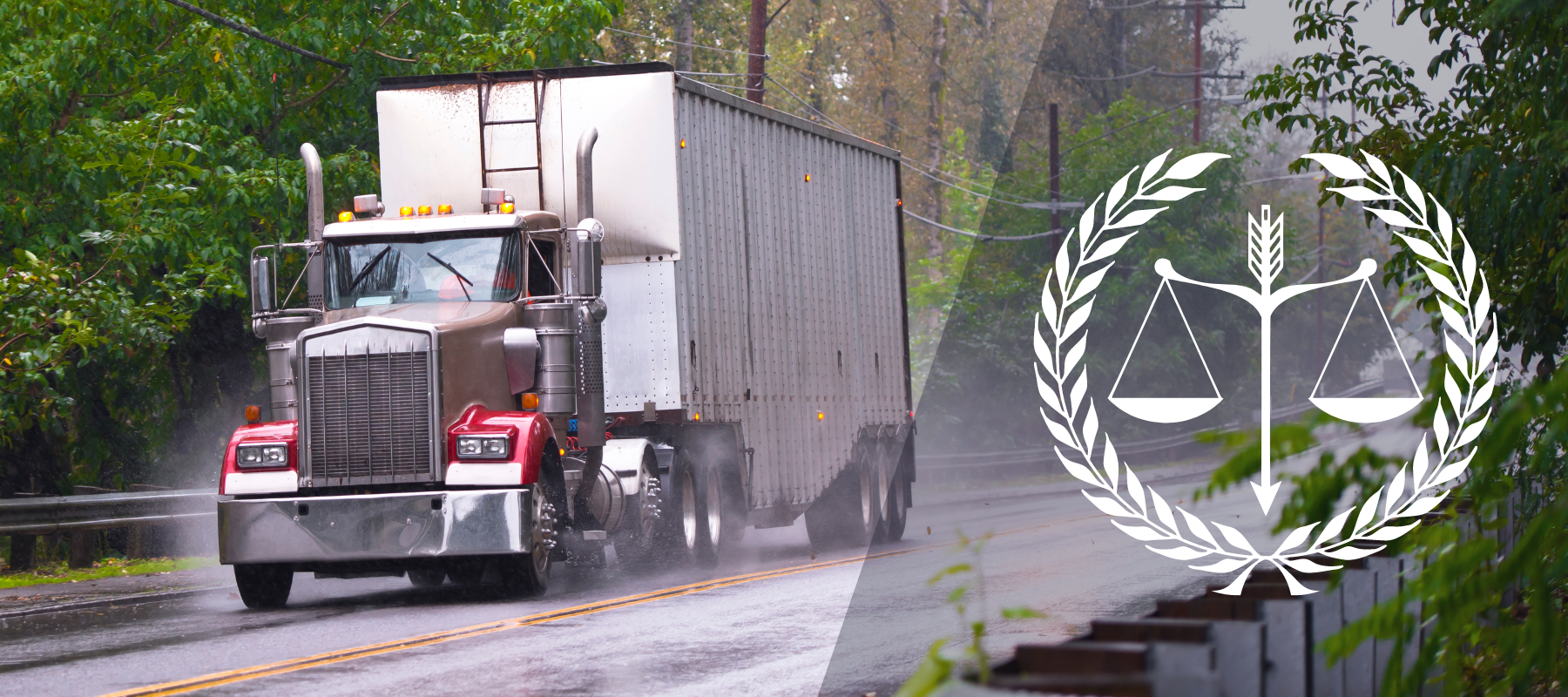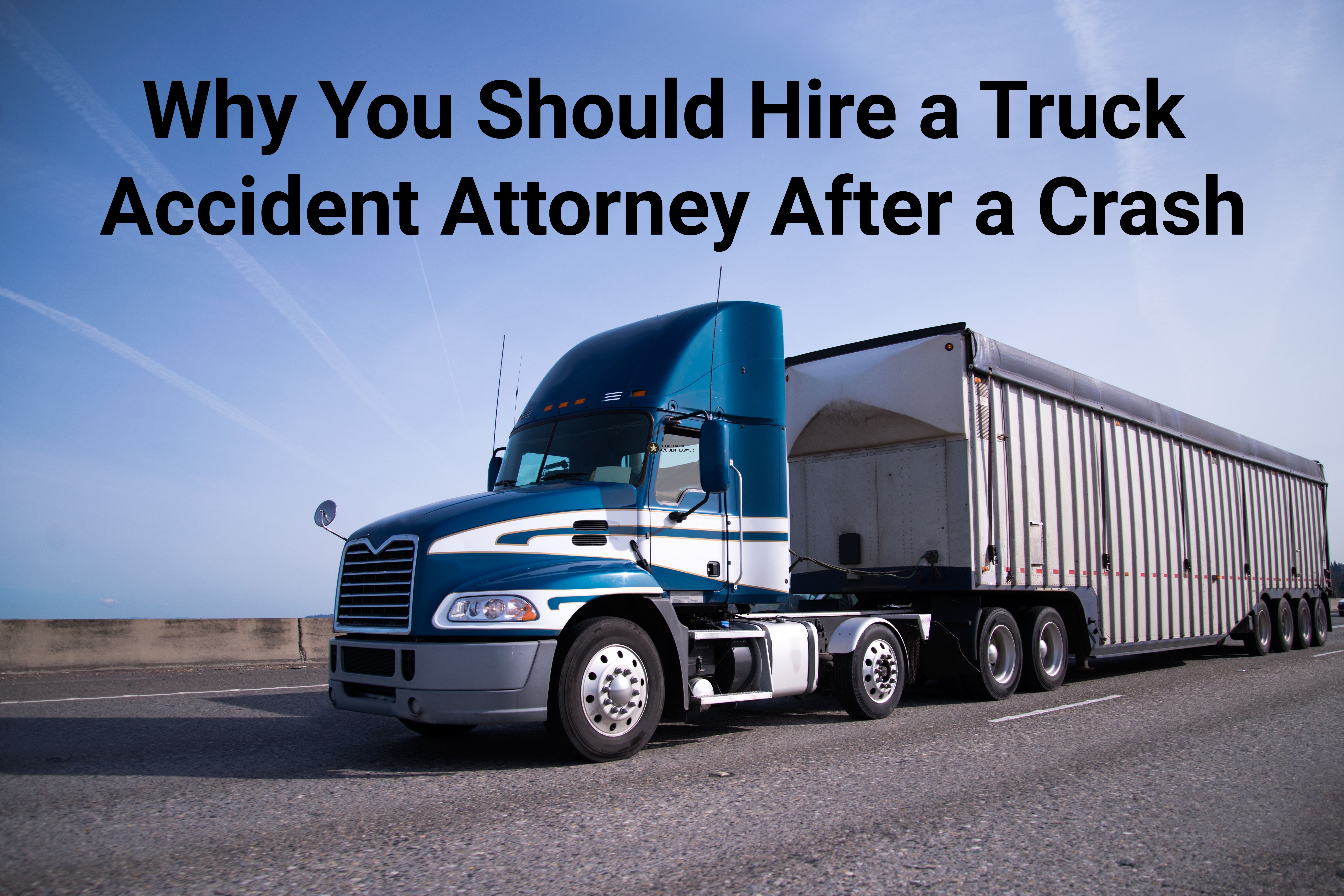When a truck accident happens in Texas, one of the first questions that comes up is whether the truck was operating interstate or intrastate. Understanding the difference between Interstate and Intrastate motor carriers is crucial, as this distinction is not just technical—it determines what safety rules apply, what insurance coverage is required, and ultimately how a personal injury or wrongful death claim will be handled.
Understanding the difference can help you know your rights and what to expect after a crash.
For help, contact a top-rated truck accident lawyer in Houston.
What’s the Difference Between Interstate and Intrastate Trucking?
- Interstate trucking involves transporting goods or passengers across state lines—or even within Texas — if the cargo is part of a shipment originating from or destined for another state.
- Intrastate trucking means the truck, driver, and cargo all stay within Texas from start to finish.
The Federal Motor Carrier Safety Administration (FMCSA) defines interstate commerce broadly. For example, if a Houston-based trucking company hauls goods from the Port of Houston to a Dallas warehouse, but those goods are destined for Oklahoma, the operation still counts as interstate commerce, even if the truck never leaves Texas.
Who Regulates These Truckers?
- Interstate carriers fall under federal FMCSR rules. Regulations include driver qualifications, Hours-of-Service (HOS) limits, vehicle inspections, and nationwide safety standards.
- Intrastate carriers are governed by Texas Motor Carrier Safety Regulations (TMCSR). These rules look like federal law but have key differences that affect how long a driver can be on duty and what insurance minimums apply.
Free Case Review
Hours-of-Service: Different Rules for Different Drivers
One major difference between interstate and intrastate trucking is how long drivers are allowed to be on the road:
- FMCSA (Interstate) – Truck drivers can drive up to 11 hours after 10 consecutive hours off duty. They cannot exceed 14 total hours on duty in a day. A 30-minute break is required within the first 8 hours of driving, and drivers must observe weekly limits with a “34-hour restart.”
- Texas (Intrastate) – Texas gives intrastate drivers slightly more leeway. They can drive up to 12 hours after 8 hours off duty, and their maximum on-duty window is 15 hours.
These differences matter because fatigue is one of the leading causes of truck crashes, and accident victims need to know which rules applied to the driver at the time of the wreck.
Insurance Requirements: Federal vs. Texas
Another big distinction is insurance coverage:
- Interstate trucking insurance minimums:
- $750,000 for general freight
- $1 million to $5 million for hazardous materials, depending on type
- Federal law also requires an MCS-90 endorsement, which forces the insurer to pay valid claims—even if the policy itself would normally exclude coverage.
- Texas intrastate trucking insurance minimums:
- $500,000 for certain farm vehicles and smaller commercial trucks
- $1 million to $5 million for hazardous materials or large passenger vehicles
For accident victims, this often means interstate cases have more coverage available to pay medical bills, lost income, and other damages.
What Types of Trucks Are Usually Involved?
- Intrastate trucks often include local vehicles like dump trucks, garbage trucks, concrete mixers, tow trucks, and delivery box trucks.
- Interstate trucks usually involve long-haul 18-wheelers, semi-trailers, tanker trucks, and flatbeds hauling cargo across state lines.
Knowing the type of truck involved can help determine whether the driver should have been following federal or state rules.
How Do You Know If the Truck Was Interstate or Intrastate?
A quick way to tell is by looking at the numbers painted on the side of the truck:
- USDOT Number → Required for interstate carriers.
- TXDOT Number → Marks a Texas-only intrastate carrier.
Police reports, shipping paperwork, and insurance filings also help establish the truck’s classification.
Trucking Regulations Apply to Motor Carriers and Drivers
There can be confusion with larger trucking companies, as they will have a mix of in-state and Interstate authorized equipment. It is up to the vehicle or asset manager and the dispatcher to determine which vehicles or assets are used in various cargo-moving situations. The distinction between intrastate and interstate makes a difference in some of the regulations that may apply to a driver.
Ensuring that the correct loads go on the appropriately approved equipment becomes an issue for insurance. If an intrastate vehicle is used to transport Interstate products across state lines, there can be huge financial losses if an 18-wheeler accident occurs.
The regulations, financial, and administrative logistics of such companies are highly complex. Whether on an interstate highway or engaged in interstate commerce, the rules matter.
Why It Matters for Your Case?
Whether a truck is classified as interstate or intrastate affects:
- Which safety rules apply (federal vs. Texas standards)
- How long the driver was legally allowed to be on the road
- How much insurance is available to cover your losses
- What strategies does your lawyer use to hold the trucking company accountable
Getting this classification right can mean the more likely you are to get full compensation for your case.
Areas in Texas Where Many Big Rig Crashes Occur
Our truck accident attorneys work cases across the state of Texas. Some highways are high risk– we have exceptional expertise in truck wrecks- some dangerous areas include:
Interstate 10 Truck Accidents
I-45 Accidents
US 290 accidents
Free Case Review
How Do You Tell if You Are on an Interstate or Intrastate Highway?
Although the highway the trucker is on at the time of a crash is not relevant to their intrastate or interstate status, the following guidelines can help determine the status of a highway.
There are clear indicators to look out for to determine whether you are traveling on an interstate or intrastate highway. Firstly, on interstates, you will typically come across signs that display the word “Interstate” followed by a numerical designation. These signs serve as a clear indication that you are on a U.S. highway. On the other hand, if you are driving on an intrastate road, you can identify it by observing signs that display “State Highway” followed by a specific number. These distinct signage conventions allow you to easily differentiate between interstate and intrastate routes as you navigate the roadways.
Speak with an Experienced Texas Truck Accident Lawyer
After a truck accident, victims often face overwhelming medical bills, missed work, and uncertainty about the future. Determining whether the truck was operating interstate or intrastate is a critical step in protecting your rights.
At Texas Truck Accident Lawyer, we have decades of experience handling complex trucking cases across Texas. We know how to investigate DOT registrations, insurance policies, and federal safety compliance to build the strongest possible case for our clients.
If you or a loved one was injured in a truck crash, contact us today for a free consultation. (281) 893-0760
Kinds of Cases We Handle:
Texas Personal Injury Lawyer
Houston Car Accident Lawyers
Bus Accident Lawyers in Houston
FedEx Truck Accident Lawyer in Houston
Garbage Truck Accident Lawyer in Houston
Truck Wreck Punitive Damage Lawyer Houston
Underride Truck Accidents
UPS Truck Accident Attorney in Houston
Tanker Truck Crash Lawyer in Houston
Wrongful Death Lawyer Houston, TX
Houston Dump Truck Accident Attorney
Houston Tow Truck Accident Lawyer
I-45 Accident Lawyers in Houston
Interstate 10 Truck Accident Lawyer
Jackknife Truck Accident Lawyer, Houston, TX
Related Articles:
Interstate 10 Tractor-Trailer Accident Lawyer
Motor carrier safety records
I-45 Truck Accident Lawyers in Houston, Texas
Semi truck wreck on I-10
18–wheeler wreck shuts down Houston highway
Serving All of Texas

















